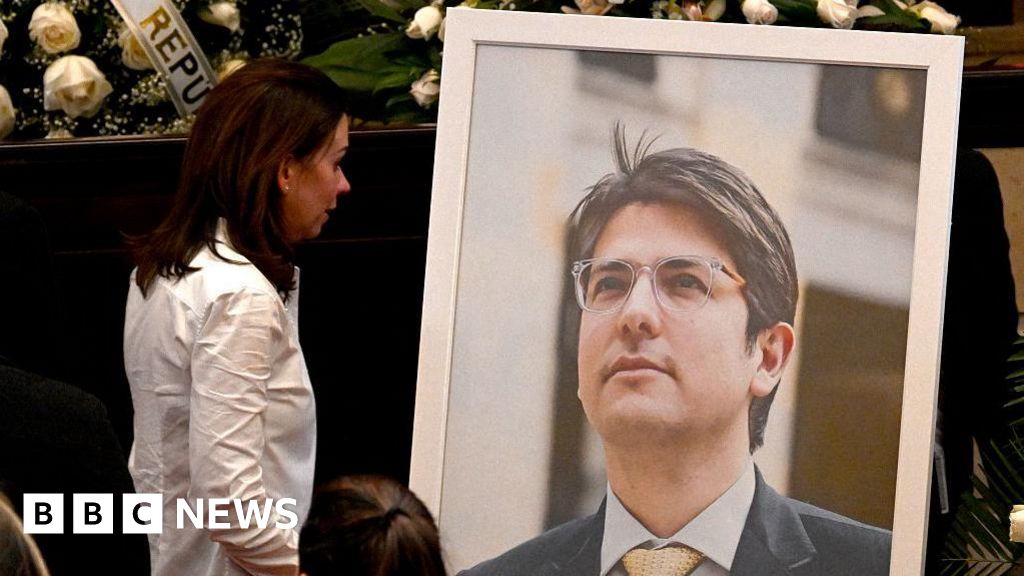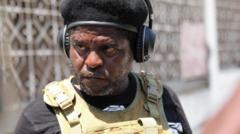In a troubling account from Colombia's burgeoning sexcam industry, young women reveal how they were drawn into webcam modeling through deceptive practices as they sought financial support for their families. Many underage girls, like Isabella, found themselves thrust into this world — often with little understanding of its ramifications and facing significant exploitation.
Isabella, who began modeling at just 17 years old to support her two-year-old son, recounted how she received a flyer promising easy money for beauty. Shortly after, she found herself in a makeshift studio where she streamed sexual performances, despite the practice being illegal for minors in Colombia. Compounding her situation, Isabella described an absence of contracts and guidance, leaving her vulnerable to exploitation. "They had me streaming without teaching me anything," she shared, reflecting on the extreme measures she took, including streaming during school hours at the behest of customers.
Colombia has become a global hotspot for webcam modeling, with an estimated 400,000 active models and around 12,000 studios operating in the country. Statistics show that the number of views on webcam platforms worldwide has surged dramatically, raising serious concerns about the legal and ethical implications for underage performers.
Models expressed that studios often capitalize on financial desperation, promising reliable income in a country where a third of the population lives below the poverty line. However, conditions within the studios vary significantly. While some offer supportive environments with mental health resources, many others remain unregulated, leading to an alarming prevalence of abuse and coercion.
Colombian President Gustavo Petro has condemned studio owners as "slave masters," asserting that they mislead young women into believing they can achieve financial independence through modeling. Despite the major webcam platforms claiming to enforce strict age verification policies, models revealed how studios can easily skirt these rules by recycling accounts or providing fake identifications.
Keiny, 20, another young model, shared her experiences with the industry, indicating that while she initially joined to help her family, she now believes that the demand for youthful performers often crosses ethical boundaries. Despite the struggles, models discussed their financial earnings — sometimes exceeding $2,000 monthly — which are vital for supporting their families.
While the industry is rich with opportunities for income, the narratives shared expose a troubling juxtaposition of empowerment and exploitation. Some models endure long hours with minimal pay, facing fines for basic human requirements like restroom breaks. Reports from Human Rights Watch corroborate claims of degrading working conditions, including cramped and unsanitary environments and coercive practices that leave models feeling helpless.
Efforts from organizations and platforms alike are underway to address these issues. However, the filtering of harmful practices and greater accountability has yet to materialize at a systemic level. While some platforms pledge to ensure safe working environments, responses from others indicate limitations in their oversight of studios. Models like Sofi, who continues to navigate this challenging landscape while aspiring to pursue a law degree, emphasize the need for changes not only within the industry but also within broader societal support systems to protect vulnerable workers.
As Isabella and her peers band together to challenge the exploitation they faced, the broader implications of their experiences remain a critical conversation point in the fight for justice and reform within Colombia’s rapidly evolving webcam industry.

















